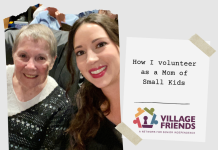Divorce: The D word. The subject of country songs. My job.

Statistically, 40-50% of marriages end in divorce–that number is even higher for subsequent marriages. I became a lawyer because I hated math, but those odds mean that if you are reading this, you are likely to have either been a child of divorced parents or have been divorced. If you have kids and divorce, that means that in addition to dividing up money, furniture, debts, and record collections, you are also going to be dividing up how you and your spouse spend time with your child(ren). Divorce is awful, messy, sad, and there are no winners…but if you do what is best for your kids and keep that as the center of everything in your divorce, you will be successful.
In Alabama prior to 1981, unless the mother was a horrible, abusive parent, in the event of a divorce, children of “tender years” (under the age of seven) lived primarily with their mother and visited with their father. Over time, the law has evolved (thank goodness) to recognize that children need frequent and continuing contact with both parents. Sometimes, that is a “50/50” custody arrangement where each parent gets equal time. Other times, that is every other weekend and one or two nights a week with a parent. It really all depends on the family and the best interests of the children involved.
I am a divorce lawyer by trade, but I am also a child of divorce. My parents divorced when I was five years old (1986) and worked out their divorce by agreement. I lived primarily with my Mom, but I got to spend lots of time with my Dad. Until I was a sophomore in high school, my parents lived at least an hour or more apart. I NEVER heard the phrases “my weekend”, “my time”, or “the schedule” from either of my parents. If I got mad at my mom, I would tell her I was going to go live with my dad. She told me I could, but I never did. (Sorry mom). When I messed up at my mom’s, I found out quick that my parents talked to each other…I was going to get a talking to by dad and they both agreed on punishments for me. They both showed up to cheer me on at soccer, a performance, or when I received an award. Sometimes they sat together, sometimes they didn’t. As I got older, sometimes just going with the schedule that we had always followed (every other weekend, split holidays, several weeks in the summer) became more difficult, as I had friends and activities that made me want to stay at my mom’s house. I remember being scared to tell my dad this because I didn’t want to hurt his feelings…after all, it wasn’t because I didn’t want to see him…it was just hard to make it all work. I can’t remember if I told him or he just figured it out…but he was so amazing about it and always let my activities and the things I wanted to do come first. We still figured out ways to have time together, and it was so much better (especially if I got one-on-one time with him!). Besides my friends and activities, holidays were really hard because I felt like I was missing time and people in both places. The main thing that frustrated or hurt me was that because my parents divorced, my life was different–and sometimes more complicated–than other kids. I am so grateful that my parents had enough love for me and my brother to be good to each other and to us. My dad came to my stepdad’s funeral and hugged my mom. They have been able to stand by each other at graduations, my wedding, my child’s birthday parties…we even all get together on Christmas Eve sometimes and open gifts together!

All our family at my son’s Christmas Program – my husband and I both come from divorced families and everyone gets along with everyone – my son will always have the biggest cheering section!
I didn’t become a divorce lawyer because my parents were divorced, but I do think my personal experiences give me a unique perspective that I am able to use in my job when I am counseling and advising clients. There is an overwhelming amount of research and scholarly articles about the detrimental effects of high-conflict divorce and post-divorce on children. Aside from the good ‘ol golden rule (you know, treat others the way you want to be treated), here are several things to remember as you co-parent with your ex:
- COMMUNICATE. This can be hard, because sometimes the lack of communication is what led you to divorce or separate in the first place. If you can text or talk, do that. If not, email or send written letters (unless it’s an emergency of course). Keep the communication focused on your child(ren) and keep it professional. We all have to work with people we don’t necessarily like or get along with, but we don’t curse them out over email or text (or at least I hope not!). When in doubt, draft it and use the “24-hour rule” to let it sit as a draft and cool off to see if you need to edit anything before sending.
- Sometimes one parent is designated as the parent who makes decisions about the children or has the “final say” — one of our judges also calls this person the “primary listener,” which means he/she has an even greater responsibility to listen and consider the other parent’s point of view or concerns.
- Kids are smart. If they see that you and your ex don’t communicate well (or at all) they will take advantage of it, which only creates more problems.
- CALENDAR. Use a shared calendar for your child(ren)’s events. There are several apps like Cozi or even Google Calendar/Docs that can help you keep all the information about your child(ren)’s activities in one place. There is also a great app called “Our Family Wizard” that allows you to communicate, calendar, and share information like report cards and progress reports all in one place. You can even add attorneys or counselors to see and receive your communication if needed.
- CHILDREN ARE NOT MESSENGERS OR CONFIDANTS. Please do not use your kids as the “go-between” to deliver child support payments, messages, or anything else. Don’t interrogate them about what happens at your ex’s house. Don’t have them “spy” for you. They are kids. Even older teenagers do not need to be your sounding board or the person you cry to, vent to, or discuss anything about your ex. This is NOT HEALTHY. This is what counselors and therapists are for!
- NO BAD-MOUTHING. Do NOT talk badly about your ex to or in front of your kids and do NOT allow others to do it!!! Even questioning your child about how or why things are done at the other parent’s house is like “bad-mouthing” the other parent. I will NEVER forget my former stepmother asking me if my mom made me make up my bed or do dishes at her house. Even as an 8 year old, I felt like she was judging my mom.
- IT’S NOT JUST “YOUR” TIME. This is my biggest pet peeve. Your child(ren) did nothing to cause your divorce or break up, are the most affected by it day to day, and have the least amount of say about custody and visitation. As your child(ren) get older, there will be more activities on weekends, football games, dates, sports, camps, part time jobs, etc…I see a lot of “non-custodial” parents complain that their kids have so many activities and it affects the parent’s time with the kids, but I don’t know that those parents consider that the “custodial” parent often is dealing with getting the child ready for school in the morning, homework, being the “taxi driver” to and from afternoon/evening activities, and also doesn’t get much quality “fun” time. I often think it would be nice if both parents could consider what they would be doing if they weren’t divorced or separated and lived under the same roof — you would still be taking your kid to baseball, dance, a friend’s house, or a movie, right? So why is it different just because you and your ex do not live together anymore? Be the parent who takes your kid to those activities. Try to remember what it was like when you were a kid. Don’t get me wrong–kids should not call all the shots, but the fact that they are developing their own life to try to become a normal, young adult should not be discounted.
- LET YOUR KIDS BRING THEIR ITEMS BACK AND FORTH. Have you noticed that kids have a favorite shirt or dress or toy? Let them take it with them if they want to. If it doesn’t come back, you can cross that bridge later (opportunity for teaching your kid to remember to pack important things???). Having clothes or toys that cannot go to the other parent’s house only punishes your child, not the other parent. Is it really that big of a deal? Who cares that you bought the $8 shirt and your ex never buys any shirts? In the words of Elsa, “let it go….”. Sometimes these items represent a sense of security for your child and that is far more important than who bought it.
- BE KIND. Give grace — to yourself, to your ex. We don’t deserve it, but God gives it to us each and every day. If we can all be kind to one another and treat each other the way we want to be treated, everything else will fall into place. Anger and resentment only hurt you and make you unhealthy both emotionally and physically. Find a way to let go of the anger and hurts and choose to love your child more than you “hate” your ex.











